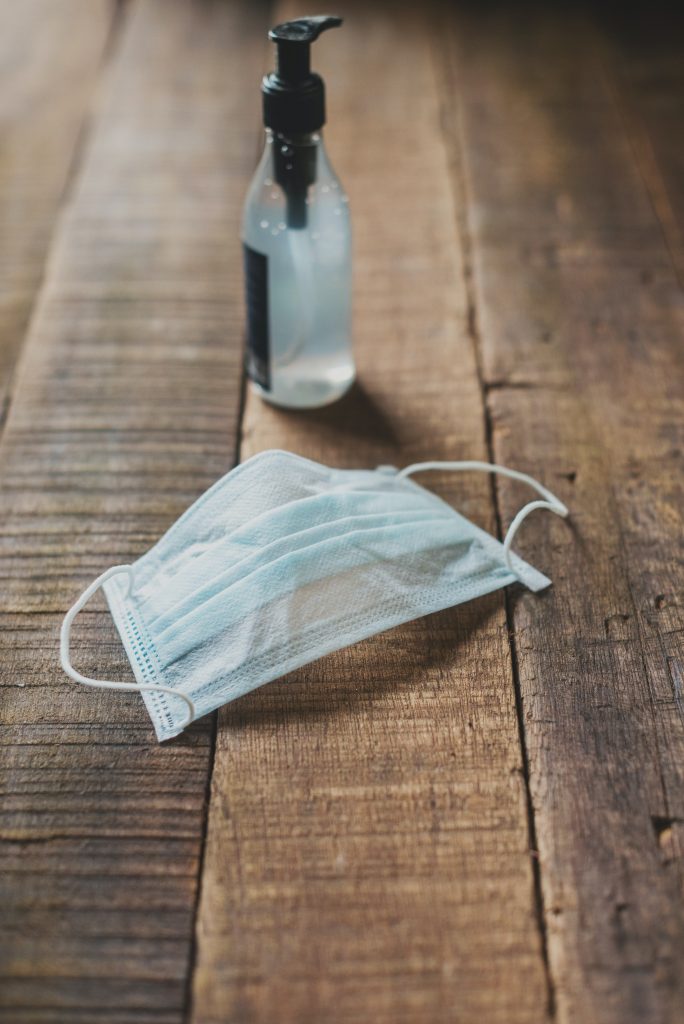Introduction
During the COVID-19 health contingency, various economic activities have been altered. The medical device industry is not an exception. Therefore, in this article we summarize how this sector has been affected in the latest months and what measures the health authorities in Mexico have taken. We will focus on specific medical devices that have been affected by sanitary regulations.
Submission of requests to COFEPRIS
One relevant measure COFEPRIS has taken to face this outbreak is to publish a list of requests considered as a priority during the emergency. This list includes 186 types of requests. The foregoing means that the rest of the requests (non-priority) will present a delay (not reported), giving COFEPRIS the faculty to legally avoid timeline compliance on those products not related to the COVID-19. As expected, these actions have seriously affected the industry as any request for sanitary registration and other related procedures are treated as second priority if the procedures are not related with products for treatment and diagnosis of COVID-19. This measure will result in long evaluation times.
It is also important to mention that COFEPRIS partially closed its operations, ceasing to receive requests in person. Users now must send and receive their requests by ordinary mail or courier.
Approval for government purchase of products without sanitary registration.
It is worth mentioning that Mexican Government published an official document indicating that during the health emergency, the Ministry of Health (as part of the Government) would be the only organization empowered to import or buy products related to COVID-19 to be used in public hospitals (including: ventilators, masks, diagnostic tests, etc. ) without requesting sanitary registration or import permits from these products.
Although this initiative is suitable for providing health supplies more quickly around the country, it caused cases of corruption and it also generated complaints from the private industry.
It is worth mentioning that the above-mentioned official document has been misleadingly used to confuse buyers of acquiring COVID-19 related products without having a sanitary registration.
Diagnostic tests
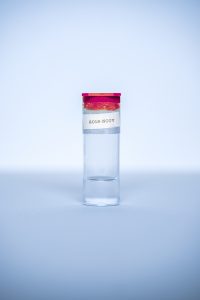
Regarding diagnostic tests, COFEPRIS initially approved only molecular tests (PCR); however, the approval of serological screening tests (rapid tests) has been published recently. Another action has been to establish protocols to guarantee the effectiveness of the results of these COVID-19 diagnostic tests, issuing a list of products already approved for commercial use.
About the application of this tests in public hospitals, the Institute of Epidemiological Diagnosis and Reference (InDRE) has also contributed in carrying out molecular diagnostic tests. In this case InDRE is the organization who previously evaluated all diagnostic tests before a sanitary registration could be granted by COFEPRIS.
It is interesting to mention that before the COVID-19 pandemic only a few diagnostic tests were evaluated by INDRE (including those related to SDTs, such as HIV, Hepatitis).
As this is a new process, requiring more procedures (unlike other countries that have shortened the regulatory process), InDRE is currently overworked and there is not guaranteed to have an answer.
To help understanding the current approval process. Whoever interested in registering a diagnostic test for Covid-19 in Mexico should:
- Request an import permit to bring test samples to Mexico (in case they are not manufactured in Mexico).
- Provide samples to InDRE for evaluation. Such approval can be received within 1 month.
- Once InDRE approval has been received through COFEPRIS (by courier, as described above) and wait for a temporary approval document within the next 15 days. This means, COFEPRIS will “automatically” approve the product and meanwhile reviewing technical and legal documentation to issue a formal sanitary registration.
Medical ventilators
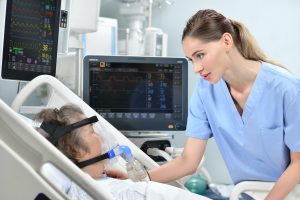
Ventilators are considered a Class II (risk classification) medical devices in Mexico. However, recently, universities, engineers and manufacturers have released free diagrams to develop devices known as Ambu-bag ventilators. This type of devices has created confusion in the sector since they are not properly a standard ventilator, but an automated Ambu-bag system. However, when if its purpose is clearly established as life support for patients who require subsequent intubation to a ventilator, this is an adequate alternative.
In Mexico, the regulatory process to make available medical ventilators was not eased (unlike other countries). COFEPRIS currently requires ventilators to be validated through CENAPRECE. Institution that was not previously related to any regulatory process in Mexico. Therefore, the process has been ambiguous and is focused on supporting those manufacturers that exclusively develop and manufacture ventilators (even before the COVID-19). When recieving a CENAPRECE approval, COFEPRIS will also grant a temporary approval document. The process is similar as with the diagnostic tests.
Face masks
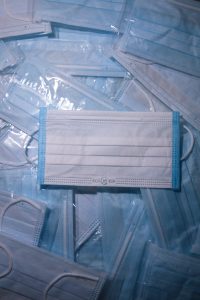
There is an actual shortage of protective face masks, mainly KN95 or N95 for medical use. This situation has led to the development of an informal economy based on manufacturing and distribution of non-regulated face masks made of manufacturers commonly focused in non-medical textile industries.
Is worth mentioning that in Mexico, protective masks for medical use are treated as Class I low risk medical devices and thus require a sanitary registration. This kind of products are considered as low risk devices requiring a simple registration process.
On the other hand, face masks not for medical use are not considered as medical devices and do not require any sanitary registration.
Protective face masks are an example of medical devices benefited by sanitary regulations in Mexico because this product is considered as a priority for approval and their regulatory registration is simple. However there is a challenge with the informal economy offering KN95 or N95 masks for medical use not filling quality and regulatory requirements (putting in a higher risk health professionals working with infected patients).
Surgical clothing
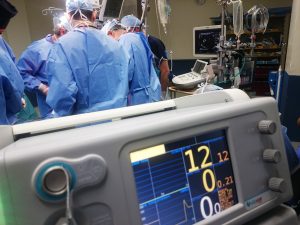
As with face masks for medical use, surgical clothing is considered a low-risk Class I medical device.
This kind of product is also benefited by the Mexican health regulation and it has been found in an informal market that sells products not compliant with the necessary requirements to protect health personnel (as in the case of masks).
Thermometers
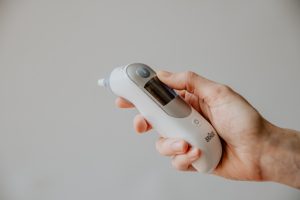
These products are considered as Class II medical devices. Although they have been benefited by the Mexican health regulations, their approval process is more complex than low-risk Class I devices.
Likewise, we have noticed a significant offering through online platforms not declaring the sanitary registration.
Surgical gloves

About surgical gloves. Particularly the widely use nitrile or latex, are both considered as Class II medical devices.
These products have also been benefited by the Mexican sanitary regulations and we have noticed that this is one of the only COVID-19 related products which the supply has not been affected due to national suppliers, because this was an already a solid industry in Mexico prior to the pandemic.
Disinfectants
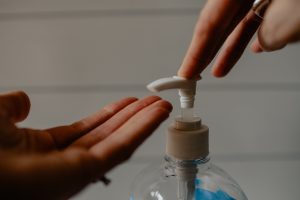
The disinfectant products situation is controversial overall. Specifically, because there are many products commercialized as sanitizers (that do not destroy the virus), these products are not considered as medical devices.
However, disinfectants including ingredients, which are considered in the health regulations, have an ambiguity, since they are considered class I medical devices (as long as they are not intended for the final process of another medical device – such as autoclaves) and therefore they would be considered class II). However, we also find in the list of products that do not require sanitary registration, that disinfectants do not require a sanitary registration. This ambiguity has caused that they may or may not be sold with sanitary registration.
Conclusion
In this article we have reviewed that there are COVID-19 related medical devices that have benefited from the sanitary emergency and other devices have been affected (ventilators, diagnostic tests, among others).
Likewise, market behavior has been detected that tends to lack information or misleading data to take advantage and selling what seems to be safe. This is not an exclusive trait for Mexico, so we would like to invite all those involved in the industry to do their best to share reliable information for consumers, to deliver products for those who need it most.
For more information, check similar notes in our Guides.
In case you have any question or comment, please feel free to contact us at contact@veraqueconsulting.com

